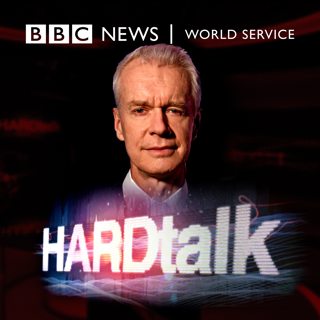
President, Pontifical Council for Justice and Peace - Cardinal Peter Turkson
It is nearly a year since the new Pope was installed, but still the same problems dog the Catholic Church. A UN Committee on the Rights of the Child has just criticised the Vatican over its failure to deal decisively with child sexual abuse by priests. Gay rights activists still attack the Church on its stand on homosexuality and the Vatican’s finances have been under scrutiny and criminal investigation. Hardtalk speaks to Cardinal Peter Turkson who was tipped to become the first black Pope. He’s calling for financial reforms and action against poverty and inequality. But does the Catholic Church have the moral authority to take a lead on such issues?
10 Feb 201423min

British Foreign Secretary - William Hague
From Syria and Afghanistan to relations with the US and Europe, how influential is British foreign policy today?Picture: William Hague, Credit: Dan Kitwood/Getty Images
7 Feb 201423min

Secretary, All India Progressive Women’s Association - Kavita Krishnan
Stephen Sackur talks to the prominent women’s rights campaigner, Kavita Krishnan. Delhi is a proud capital of the nation - a noisy and vibrant place - but a city stained by its record on sexual violence. More rapes are recorded here than any other Indian city. Just over a year ago a 23-year-old medical student died after a brutal gang rape on a bus which shocked the nation and prompted millions of people to demand government action to end gender violence. Is India becoming a safer, more equal society for women?Picture: Kavita Krishnan, Credit: BBC
5 Feb 201423min

Deputy Prime Minister of Iraq for Energy - Hussain Al-Shahristani
Hardtalk speaks to Hussain Al-Shahristani, Iraq's Deputy Prime Minister responsible for energy. He's in London to attend a conference, but also to convince the world that his country isn't sinking back into civil war. A decade on from the fall of Saddam Hussein, is Iraq perilously close to tearing itself apart again?Picture: Hussein al-Shahristani, Credit: Sabah Arar/AFP/Getty Images
3 Feb 201423min

Archbishop of Canterbury - Justin Welby
Hardtalk speaks to the Archbishop of Canterbury and leader of the Anglican Church, Justin Welby. He has just embarked on a tour of four African countries, all touched by vicious and bloody conflict - South Sudan, The Democratic Republic of Congo, Rwanda and Burundi. It’s part of his mission to visit as many communities as possible in the 80-million strong Anglican Church worldwide. Can he help heal the divisions in these conflict ridden countries? And what is his answer to critics who say that religion itself is partly to blame for ethnic hatred and killings. Also, the church is polarised on issues such as same-sex marriage and gay priests. Can the Archbishop keep the Church together?
31 Jan 201423min

Chief Minister of Jammu and Kashmir - Omar Abdullah
In a special edition of Hardtalk recorded in front of an audience in India's capital Delhi, Stephen Sackur talks to one of the country's most intriguing politicians. Omar Abdullah is Chief Minister of Jammu and Kashmir, a long disputed territory once described by former US president Bill Clinton as the most dangerous place on Earth. Is there any hope of Kashmir becoming a place of peace not conflict? Omar Abdullah has been Chief Minister of Jammu and Kashmir for five years, following in a family tradition. His grandfather was the state's first prime minister and his father served as chief minister too.Picture: Omar Abdullah (left) with presenter Stephen Sackur
29 Jan 201423min

Finance Minister of India - Palaniappan Chidambaram
India has experienced unprecedented growth. Why does poverty persist?Picture: Palaniappan Chidambaram, Credit: Sajjad Hussain/AFP/Getty Images
27 Jan 201423min

Finance Minister of Cyprus - Harris Georgiades
When Harris Georgiades became Finance Minister of Cyprus a year ago some said he had been handed poisoned chalice. He has had to preside over tough austerity measures that are driving poverty levels in the country. The economy is shrinking, unemployment will perhaps reach 20% this year and wages are being slashed. These were the tough conditions of a 10 billion Euro bailout granted last year with the Troika of the European Central Bank, the EU and the IMF to avoid a collapse of the banking system in Cyprus. So why then does the Finance Minister believe that the economy is proving more resilient than expected? Is he being too optimistic?Picture: Harris Georgiades, Credit: AP Photo/Petros Karadjias
24 Jan 201423min






















